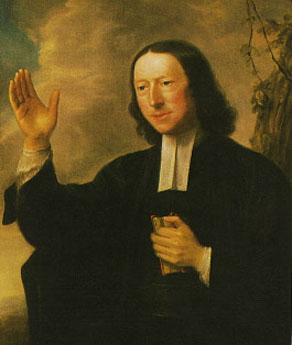In the history of modern education, John Wesley (1703-1791) holds a special place when it comes to the religious education of children.

John Wesley
- Ordained a minister in the Church of England.
- Missionary to Georgia in America
- Founder of the Methodist movement
- Education: Oxford University
Written Works:
- Journal
- Notes on the New Testament
- Christian Library (editor)
John Wesley, a product of a long line of ministers (he was the fifteenth of nineteen children), was the founder of Methodism. Along with his brother Charles, he was a student at Oxford and later was ordained in the Church of England. They both traveled went as missionaries Georgia.
In 1738 John had a conversion experience after he returned from his missionary tour. He became convinced that salvation came only through faith in Jesus Christ.
Wesley tried to discover ways to intentionally organize the rule and conduct of the Christian life. As a result his followers were called Methodists. While Wesley himself never left the Church of England, his movement eventually separated from that faith and became its own church. The Methodist movement was the third religious awakening in England. Historians rank the Methodist revival with the French Revolution in historical significance, and some subscribe to the idea that Wesley’s preaching saved England from a revolution similar to that of France.
John had a deep passion for the education and nurture in faith of children. His influence helped the growth of the Sunday School movement in America and England. By 1844 Methodism was the largest denominational body in America.
Wesley based his educational approach to education on principles of sense realism and universal education. He wrote that the education of children should be a special priority in the Methodist society. He wrote several teaching manuals and tracts for children. Wesley gave special prominence to the home in the Christian education of children.
But learning does not end with childhood, and Wesley was concerned that Christian education should continue into adulthood. So he established Methodist schools which centered on well rounded curriculum that included health and physical education in addition to teachings about matters of faith and intellectual development. Not only were these schools only for Methodist children, but intentional Christian nurture at home was a requisite for continued enrollment.
Wesley was an innovative educator who used several methods to nurture the faith in adults. He formed class meetings (we call them small groups today), the band system, and the select society.

SOURCES
E. Cairns, Christianity Through the Centuries.
K. Gangel and W. Benson, Christian Education: Its History and Philosophy.
J. Reed and R. Provost, A History of Christian Education.
More on John Wesley here.
